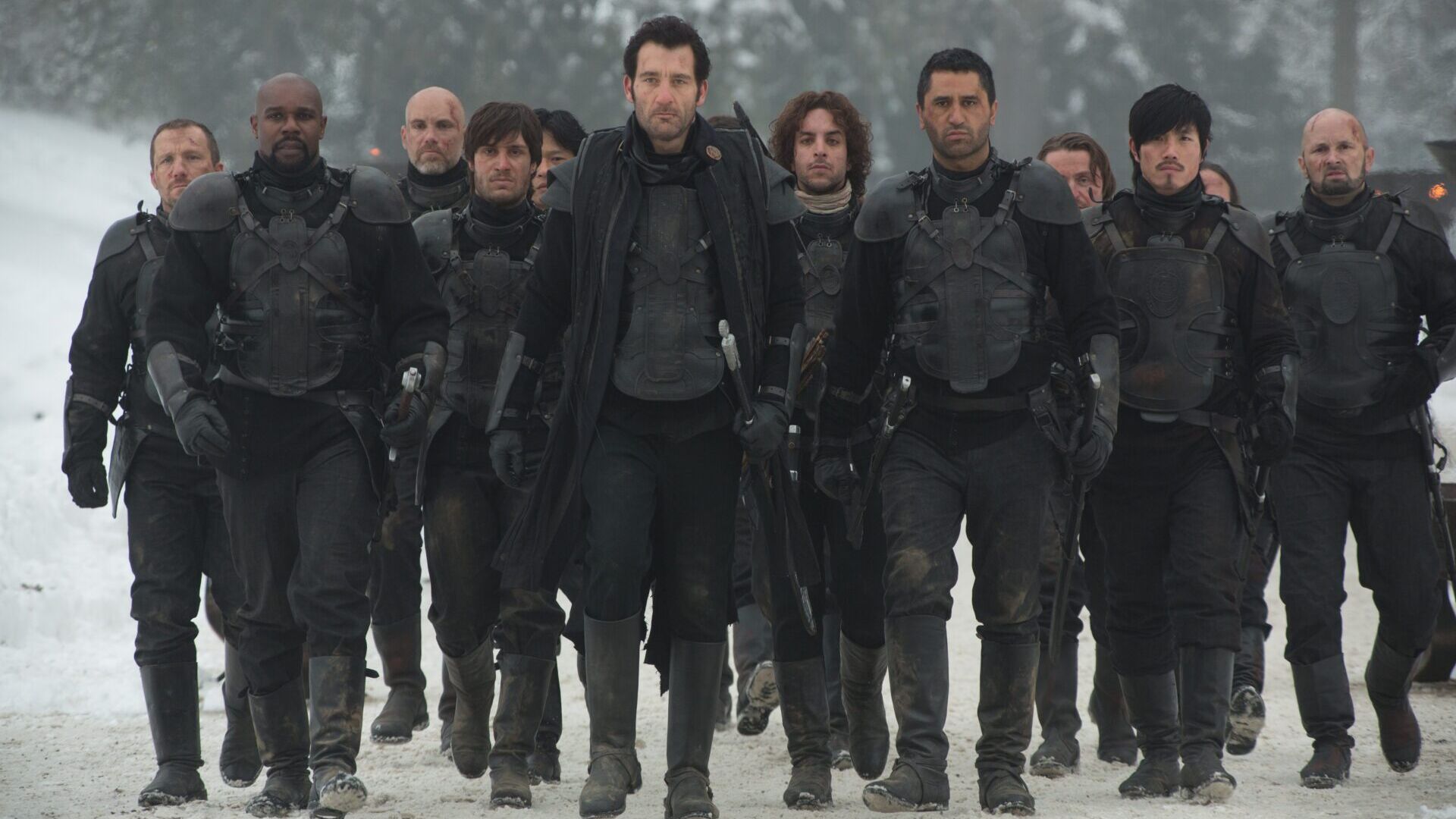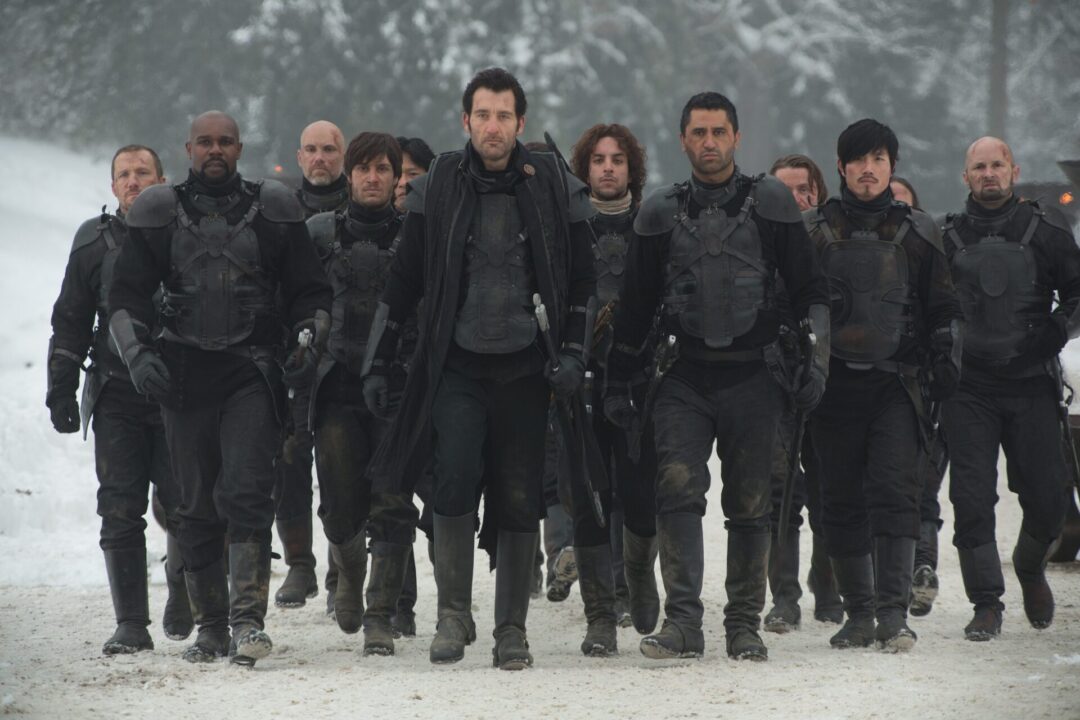For a good portion of cinema’s history, there has always been an exponentially growing popularity of the use of genre experimentation. Its results have been varied to say the least, however; films that employ this tool have done exceedingly well in drawing attention to the preconceived perception of the actors within the films.In other words, the filmmakers play on the expectations of the audience in order to attempt to build off of them to create something original. Going into a film with Clive Owen, you can typically expect the movie to fall into one of two categories: the film will usually either be a twisting, turning heist movie or a more epic period piece. It’s not hard to imagine that Director Kazuaki Kiriya’s style of exciting, violent epics would mix well with Owen’s forte. Last Knights is an entertaining journey of retribution with an Ocean’s Eleven style of storytelling that keeps audiences’ attention without being too cerebrally demanding.
Aesthetically, the film is thoughtful to say the least. While the film’s setting looks to have mostly Anglo-inspired medieval glamour and ornamentation, it does take place in an empire that has assimilated people of all cultures, creeds and race. So there are some clear deviations to the Arthurian deco, including a nice amount of Asian-fusion in the wardrobe and especially in the katana wielding knights. Both the blades and the armor are trademarks to the type of cosmopolitan barbarianism of the world in which Kiriya places his characters. This “otherworld” device is very effective in drawing audiences into the narrative because it keeps them constantly searching for the rules of the film world. It taps into the human instinct to comprehend situations and therefore quickly takes hold of the viewers’ focus. What works well in this case, is Kiriya’s ability to draw on real world aesthetic that allows for easy and painless recognition and therefore comfort in the acceptance of setting.
Last Knights is an entertaining journey of retribution with an Ocean’s Eleven style of storytelling that keeps audiences’ attention without being too cerebrally demanding.
In addition to the physical set and wardrobe design, another aesthetic aspect of the film worth mentioning is the lighting and use of shadows. Antonio Riestra really displays a true prowess in his understanding of lighting in the use of white versus yellow lighting. By using the sun as a source, he uses white lighting to instill a heavenly ambiance in scenes exemplifying honor and nobility. In contrast, the dark rooms accented by a deep, golden candle light to create a muggy sense of gluttony and doom that can be found in many scenes with death and filth. This of course, adds to the “otherworld” aspect previously mentioned.
Now, for where the film fell short. As mentioned before, the film wasn’t the most intellectually stimulating and while this part of its charm, it leaves a little more to be desired. For example, the film sticks to an antiquated style of binary motivations. There are the knights who live by their code of honor and stick the rules; the good guys. Then there is the evil ruler with no other motivation but malicious vanity and a good dose of narcissistic paranoia; the bad guy. The idea of good versus evil is a tale as old as time and it is understandable for Kiriya, who’s past work has had an affinity for this style of fairytale binary, to have been drawn to this form of narration. However it seems to be outdated in contemporary cinema, and while it may be effective for a wide audience base (which allows for its continued existence in Hollywood cinema), its thematic simplicity seems out of place when juxtaposed with the delightful intricacy of the journey.
Perhaps this, combined with the theme of pure unadulterated loyalty and devotion that lies above the needs and thoughts of the individual, prevents the film from completely connecting with the modern day audience. However, this does not stop the film from being an entertaining spectacle of blood and bad-assery, and as such is an enjoyable film to watch without working too hard.
Last Knights is in theaters today.
Ryan Denman
Ryan is a contributing writer for CINEMACY.


